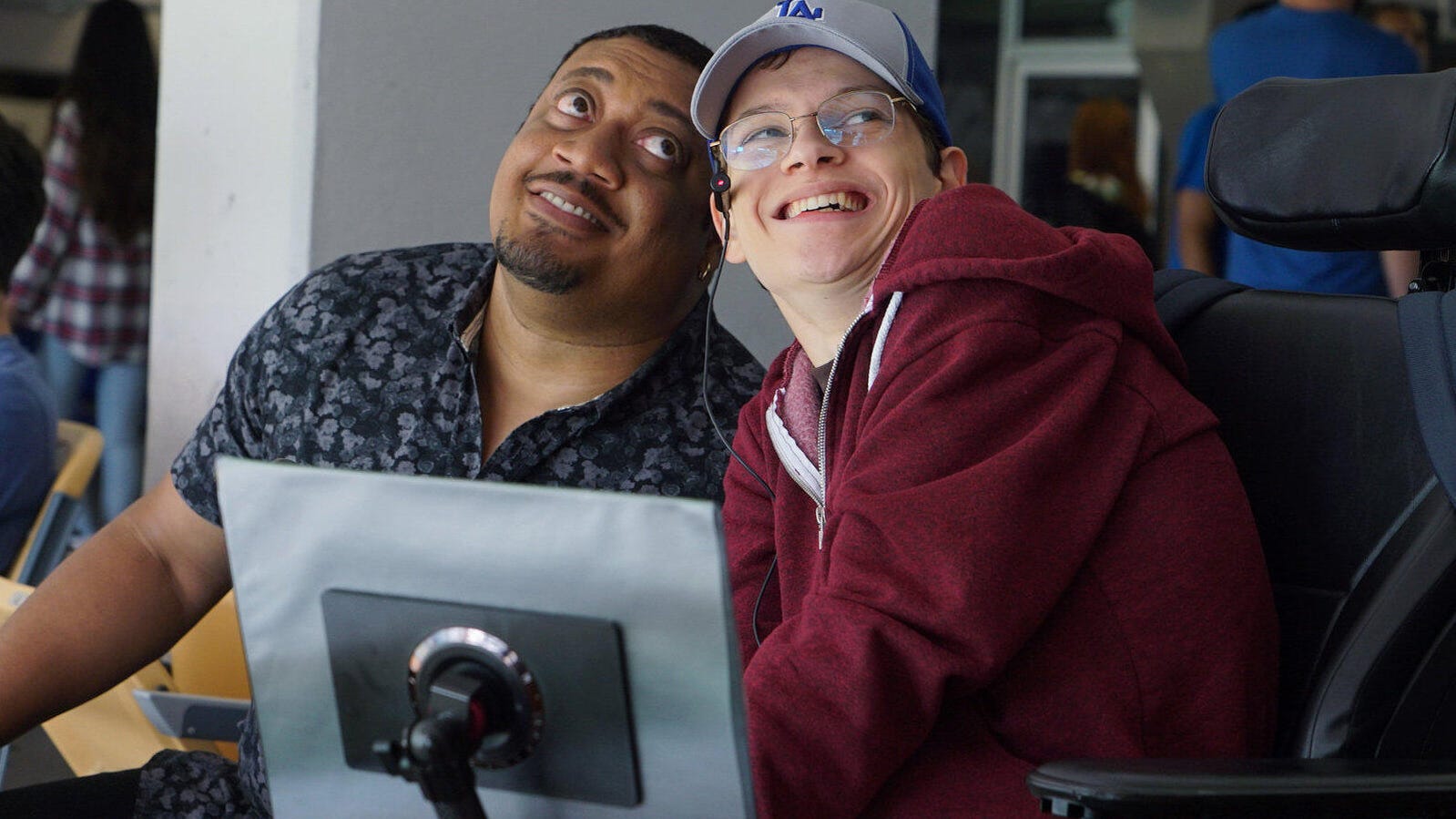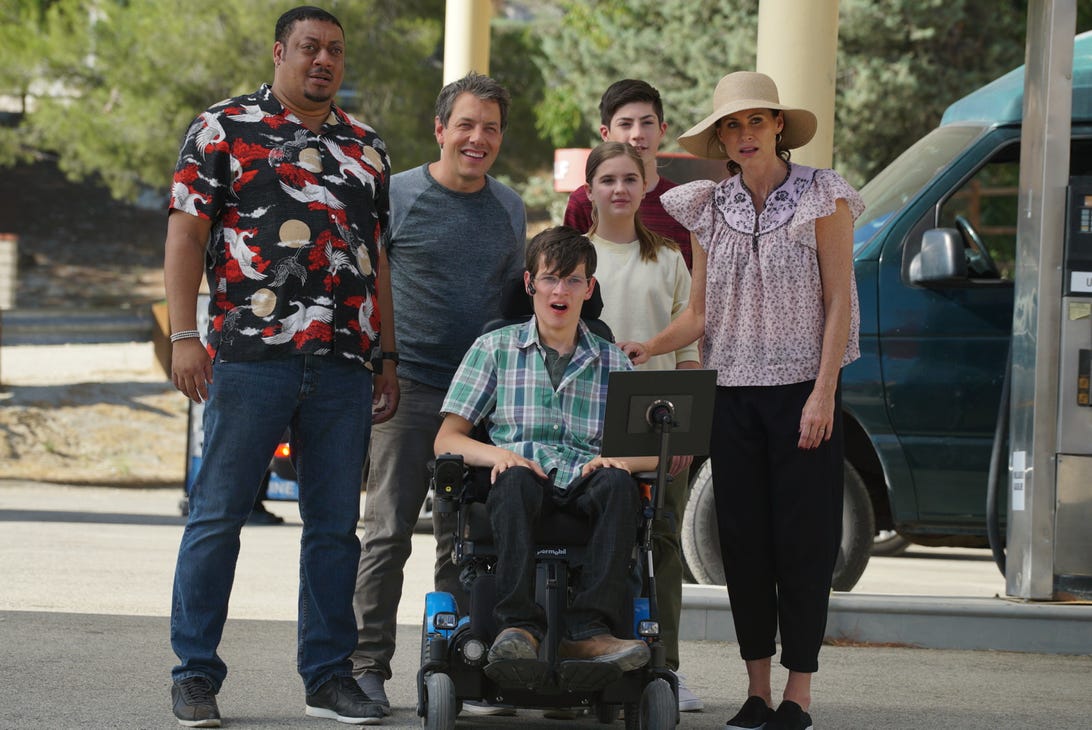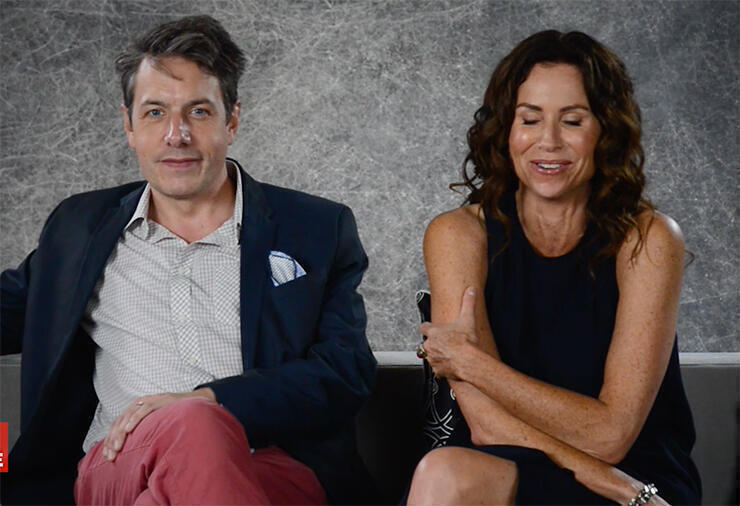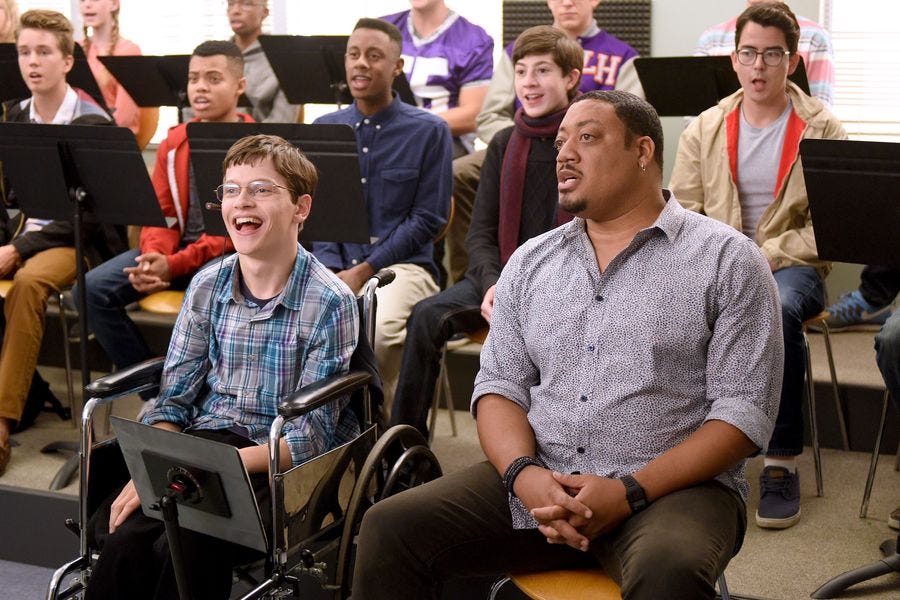
Why Are You Sleeping on 'Speechless'?
One of the most underrated show on television, 'Speechless' is doing things never seen before in Hollywood
As a disabled person, I can count several occasions where the phrase "I saw a person like you in a movie" has been lobbed at me by someone expecting praise because they saw someone who used a wheelchair. And because I act as a makeshift fount of information on disabled representation, I'm regularly asked to recommend films and television that portray disability in a way I'd consider good. I don't have many answers in the affirmative. So when I discovered ABC was creating a television show about a non-verbal teen who uses a wheelchair, I had some preconceived notions. Entertainment about disability is regularly directed, written, and starring able-bodied people, who portray our lives as a pity party at best and a death sentence at worst. But you can't judge what you don't know so, with trepidation, I prepared to get angry at what I assumed was another entry in Hollywood's misguided attempt at showing disability.
The pilot of Speechlessintroduces us to the DiMeos, a struggling lower class family moving to a new school to help disabled son, J.J. (Micah Fowler) integrate better. As I watched I was shocked. The DiMeos were like my family. They didn't have buckets of money, their house wasn't handicap friendly, and matriarch Maya (Minnie Driver) advocated harshly for her son to be treated like a human, much like my mother. More importantly, J.J. reminded me of myself. We didn't have the same disabilities, but he mimicked my own thoughts regarding how people treat him and can be a bit of a jerk (ask my brothers, they'd back me up). Is this how it feels to be represented?

I cover pop culture daily and I'd never been bothered by not being represented on-screen, but watching the Speechless pilot was an emotional experience. We weren't watching an A-list actor sit down in a wheelchair to remind able-bodied audiences how hard (and hence, undesirable) our lives were. Someone understood. In the show's two seasons Speechless has undone the overused ideas of what a disabled narrative looks like by not using J.J. as a plot device to promote able-bodied happiness. He's a three-dimensional person with wants, desire, and most importantly, flaws. But this development goes against how disability has played on-screen and explains why it remains such a hidden gem in the entertainment landscape.
Speechless subverts disabled narrative tropes by focusing on J.J. 100%. Too often an able-bodied character like a wife or mother acts as a go-between for the able-bodied audience watching, a concept I call "the able-bodied buffer." Said buffer exists to aid audience comfort with someone who, presumably, is foreign to them. They can safely pity the person with the disability yet, because the focus of the show is really about the able-bodied people, the audience is reminded of themselves. They can still identify. Speechless is different. J.J. is the star. He isn't a weakling looking for a savior. And while his family get individual plots, the able-bodied audience relates to everyone's situation equally. Everyone in J.J.'s sphere of influence is messy, loud, developing, and growing alongside him.

Finding allies who understand the minutiae of disabled representation isn't easy, but when I talked to Speechless' showrunner, Scott Silveri, he got it. Growing up with a brother who was disabled, the need to advocate and adapt their lifestyle "was always a big part of who were were as a family." We laughed at his attempt to avoid "able-splaining" things to me, a word I've been told by people on social media doesn't exist (it does), so it's wonderful that Silveri knew it. Silveri sheepishly admits he's still lacking though when it comes to understanding representation fully. This is his first time dipping into the waters of the subject, something he's never tackled in his previous work on Friends or Go On. He believes showing a family "like my own" builds towards removing disability stigmas, especially in entertainment where he admits, "Hollywood is not set up" to help people with disabilities get their foot in the door. "For too long it's been the same able-bodied, straight, white guys" making disabled narratives, and Silveri says it's not "forgivable" for studios to be behind the curve.
The key to breaking the glass ceiling is doing what Silveri has been with Speechless: rewiring audiences' minds to think differently about the subject. Silveri is adamant that he never wanted to portray J.J. as an angel, a concept referred to today as "inspiration porn" that goes back to Charles Dickens' Tiny Tim. The Speechless episode, "H-e-r-Hero" examines the conceit with J.J. and his aide, Kenneth (Cedric Yarborough) comparing it to the magical negro trope popularized by Spike Lee in 2001.
J.J. is written with mentality I call "yes, but." Yes, he's disabled. What else? "If this is a character who is defined simply by [his disability] then we're not doing our jobs," Silveri says. The solution was simple, at least to those living with a disability: frame J.J. as who he is, a teenager, a kid that's fumbling through the world like everyone else. "What if he's not so sweet? What if he's a big brother? What if his goal is to torture his little brother? What if he's irascible and kind of a pain in the ass at times like anybody else" was Silveri's thinking. In the aforementioned "H-e-r-Hero" episode, this quality is evident, with J.J.'s little brother, Ray (Mason Cook) deciding to use him as the source for an essay on inspiration. When Ray realizes strangers are also using J.J. because he's an easy source of pity, Ray decides to be honest and admit his brother isn't perfect. "I think the most fun we've had with the character was making mistakes, mistakes that any other teenager would make," Silveri says.
If this is a character who is defined simply by [his disability] then we're not doing our jobs.
Speechless asks audiences: What do you think a disabled person is capable of? Why do you think that? And, most importantly, can you stop thinking that way? Like Ray's essay, the show's biggest hurdle is reminding audiences that not everything should connect to J.J's disability, like a job for instance. This past season saw J.J. decide to become a director, "a want that has nothing to do with [his] disability" according to Silveri. These changes don't sound groundbreaking, but they ask audiences why J.J. can't, like any boy, have dreams that aren't about being disabled?
That process of questioning your own biases is one Silveri trusts audiences to do because he had to delve into it himself while working on Speechless. Despite previously believing he was aware to disability issues because he lived alongside someone with one, he's no expert. "Even I, who should have been woke a long, long time ago, didn't have an eye to these issues at all on any of the shows I had done in the 20 years of my career leading up to this." Several stereotype busting ideas for the series he attributes to the show's consultants with disabilities. One specific consultant named Eva as directly responsible for suggesting the "H-e-rHero" episode on inspiration porn and was the one who gave Silveri the idea for J.J. to speak with the help of Kenneth.
"Originally, it was conceived as [an] augmented speech device, a computer like Stephen Hawking. I sat down with Eva who used an aide to help her with communication in the same way that J.J. does and I thought 'this is a really interesting dynamic and that would be far more fun to have an additional character rather than a computer." The series also boasts disabled directors and several disabled writers who use wheelchairs. Their knowledge creates a "germ" of a story that, on a surface-level, wouldn't immediately lend itself to a sitcom, but end up expanding into a full-fledged story only this show can tell.

And while Silveri's still learning -- the series has been criticized for prioritizing some of J.J's disabilities over others he has, as well as dovetailing J.J's desires against those of his family, aka able-bodied characters -- these factors make Speechless the unique, entertaining and relevant family sitcom it is. And yet why, on a daily basis do I hear "I've never heard of it" from people I recommend it to? Awards aren't the sole arbiter of success, but Emmy and Golden Globe nominations are vital to up a show's Q rating, or brand familiarity, as has been the case with family shows like Jane the Virgin or Modern Family. Yet despite being one of the "most co-viewed comedies on broadcast TV" according to ABC Entertainment's head of current series programming Vicki Dummer, the show has failed to secure any significant awards attention. Silveri optimistically chalks it up to strong competition, especially from his home network. "There are a number of family comedies out there, strong family comedies, and I think it's hard to get attention as one in that crowd." But it's hard to avoid thinking the lack of recognition is a groupthink of stagnant beliefs. After all, if it isn't being placed in front of the audiences who should be watching -- primarily the able-bodied -- how can this immensely important show help change how disabled people are viewed in society?
Speechless isn't the first show to depict a disability, but it is the first show that's even attempted to remove established stereotypes of what a show featuring disability should be about. For most audiences, raised up on strong able-bodied films and TV shows, disability doesn't lend itself to humor, especially in comparison to the wacky family life of the Dunphy's on Modern Family or the nostalgic past depicted in The Goldbergs and This Is Us. Right now word of mouth brings audiences' into the DiMeos world and there's only so much individuals can do to promote a series. The network hopes to make Speechless a "key element of our big push to bring back ABC's iconic TGIF brand back to Fridays this fall" according to Dummer. But is that enough? The show remains the little engine that could, a present staple on the series but one that seems woefully under-marketed compared to the network's more prominent awards ponies.

It's frustrating to see Speechless' impact muted because, if taken to heart, it has the ability to change how people perceive those with disabilities. On the micro level the show's success brings renewed hope towards shifting how disability is portrayed in entertainment. On a macro level the series proves that green-lighting shows about disability aren't a gamble and it's possible to make a show starring a disabled person that isn't about overcoming anything. Speechless reiterates that there's nothing horrible or frightful about being disabled, and that co-opting disability to make the able-bodied feel better about themselves is misguided. The show proves the necessity of hiring people with disabilities as writers, directors, and actors on shows that aren't specifically about disability. It's up to those in power stop seeing disabled people as sad porcelain dolls.
Speechless removes the stigmas associated with disability in popular culture and normalizes a world of acceptance. Silveri believes audiences aren't as turned off by disabilities as popular culture would like you to believe. The constant refrain this year is representation matters and it's time to put that adage where it needs to be applied: towards those with disabilities. As someone chronically attacked online for deconstructing how films use (and abuse) disability for entertainment value, Speechless educates able-bodied audiences and shows the need for said criticisms. Hearts and minds need to change, but it can't be limited to the community that already understands it best, it must blossom outward. And frankly, experiencing the DiMeos with all their flaws, humor and their humanity is something that's relatable to everyone.
So the question becomes, why are you all still sleeping on Speechless?